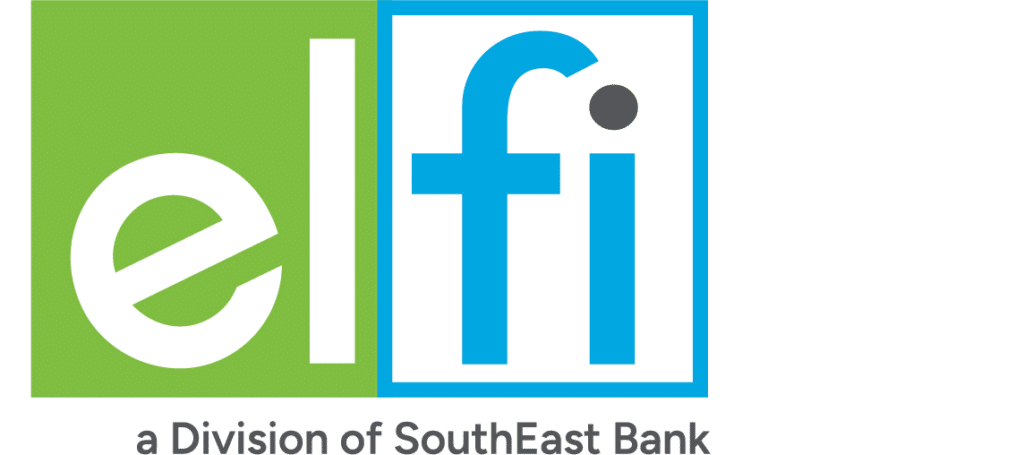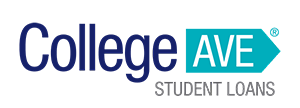Compare Private Student Loan Rates in 2 Minutes




Purefy’s experts have decades of experience in student loans and have identified the best private student loan companies. In addition to competitive interest rates, we’ve evaluated them on the following attributes: reputation/trust, security, transparency, fees (or lack thereof), flexible repayment terms, perks, and forbearance options.
Featured In
Featured In

Our Top Private Student Loan Picks for August 2025
Fixed Rate
Variable Rate
Purefy Rating
Why We Selected It
- Long 9-month grace period after graduation
- Option to skip a payment once a year
- Rate matching program ensures you receive the best deal available
Maximum Loan Amount
International Student Eligible
Graduation Bonus
Academic Deferment
Up to 48 months of deferment for attending an eligible grad school
Enrollment Requirement
Cosigner Release
Customer Feedback

Purefy Rating
Fixed Rate
Variable Rate
Why We Selected It
- Long 9-month grace period after graduation
- Option to skip a payment once a year
- Rate matching program ensures you receive the best deal available
Maximum Loan Amount
International Student Eligible
Graduation Bonus
None
Academic Deferment
Up to 48 months of deferment for attending an eligible grad school
Enrollment Requirement
Cosigner Release
Customer Feedback
Fixed Rate
Variable Rate
Purefy Rating
Why We Selected It
- Every applicant is assigned a dedicated Student Loan Advisor
- Easy, 100% online loan application
- Academic deferment available if you pursue a graduate degree
Maximum Loan Amount
International Student Eligible
Graduation Bonus
Academic Deferment
Enrollment Requirement
Cosigner Release
Customer Feedback

Purefy Rating
Fixed Rate
Variable Rate
Why We Selected It
- Every applicant is assigned a dedicated Student Loan Advisor
- Easy, 100% online loan application
- Academic deferment available if you pursue a graduate degree
Maximum Loan Amount
International Student Eligible
Graduation Bonus
None
Academic Deferment
Enrollment Requirement
Cosigner Release
Customer Feedback
Fixed Rate
Variable Rate
Purefy Rating
Why We Selected It
- Non-cosigned loans considered based on school, program, major, and other non-credit criteria
- 1% Cash Back Graduation Reward program
- Cosigner release available after 12 months of on-time, consecutive monthly payments
Maximum Loan Amount
International Student Eligible
Graduation Bonus
Academic Deferment
Enrollment Requirement
Cosigner Release
Customer Feedback

Purefy Rating
Fixed Rate
Variable Rate
Why We Selected It
- Long 9-month grace period after graduation
- Option to skip a payment once a year
- Rate matching program ensures you receive the best deal available
Maximum Loan Amount
International Student Eligible
Graduation Bonus
Academic Deferment
Up to 48 months of deferment for attending an eligible grad school
Enrollment Requirement
Cosigner Release
Customer Feedback

Are you considering applying for private student loans?
Need extra money for school, but not sure where to start? Private student loans may be your best option if you’ve maxed out your federal student loan options and explored all other avenues for scholarships, grants, and other financial aid.
Purefy helps you compare private student loans to find the best option for you. We’ve identified the top lenders offering low interest rates, flexible repayment terms, and unique perks for their customers.
Why Choose a Cosigned Loan?
Private student loan companies determine your eligibility and interest rate for a student loan using many factors, but one of the biggest is your credit score. Unfortunately, students generally have little (if any) credit history, making it difficult to get loans on their own.
This is why most private student loans have a cosigner. A cosigner is someone – usually a parent – who signs on to the loan with you and is responsible for it if you are unable to pay it back in the future.
Plus, even if you do have a bit of a credit history and can get a loan on your own as a student, you may not get the best interest rates available from the loan company. Adding a cosigner with great credit can not only help you get approved, it can also help you get the best rates.
The good news for cosigners? Many lenders offer a cosigner release program, which could remove you from the loan completely once the student has made 2-3 years of on-time payments.

How To Get a Private Student Loan
The process and timeline for getting a private student loan can vary slightly depending on what lender you choose. Here is an outline of what to expect.
01
Fill out the FAFSA
You should always use Federal loans, grants, scholarships, and school savings plans as your primary means of paying for college. If that isn’t enough to cover all your expenses, then consider private loans.
02
Compare, research, and apply for a private student loan
Use Purefy’s comparison tools to find the lender offering you the best rate on a private student loan. Plus, take into account the unique perks each lender offers like a graduation bonus or cosigner release program.
03
Submit your application and get approved by the lender
All Purefy’s recommended private student loan companies have quick & easy loan applications that can be completed in about 15 minutes. You (or your cosigner) may need to submit documentation such a paystub to get fully approved for the loan.
04
Your lender certifies your information with the school
Your school’s financial aid department will confirm your enrollment and graduation date with the lender. They’ll also make sure your loan amount isn’t higher than the cost of attendance. If you’ve already started school, they may check your grades as well.
05
Your loan is finalized and the money is sent to the school
Once your loan is certified, your lender will send you your final disclosure outlining the specifics of your loan agreement. Any leftover funds are refunded to you based on the school’s procedures, to be spent on school expenses or paid back to the lender.
What Expenses Can Private Student Loans Be Used For?
This can include:
- Tuition
- Room and board (housing, meal plan, groceries)
- Institutional fees (parking fees, lab fees)
- Transportation to and from school (gas, car insurance, public transportation)
- Books and supplies (textbooks, notebooks, pens)
- Study abroad expenses
- Dependent care (day care)
- Costs related to a disability
- Equipment (computer, software, camera if in a photography class)
- Personal expenses (necessary items for housing like bedding)
Not all expenses during the school year are included in the cost of attendance. It’s best to check in with your school’s financial aid office to be sure of what they include in their cost of attendance calculations.
Some of the excluded expenses are:
- Entertainment (subscriptions, event tickets)
- Dining out
- Travel
- Debt
- Business expenses
- Clothes
Private Student Loan Basics
01
Private student loans vs. federal student loans
Federal Student Loans
Federal student loans are issued by the U.S. Department of Education, and in most cases, offer lower rates (that are set by Congress) than rates offered by private lenders.
Federal loans also have great protections and benefits, such as forbearance, Income-Driven Repayment plans, and access to loan forgiveness programs. As such, they are the first choice when seeking the best loans for college.
You can apply for federal student loans using the Free Application for Federal Student Aid (FAFSA). After grants, scholarships, and other aid is awarded, the federal government will determine how much you can receive in federal loans. There are a few different types of federal student loans you may qualify for including Direct Subsidized Loans, Direct Unsubsidized Loans, Direct PLUS Loans, and Direct Consolidation Loans.
Private Student Loans
Private student loans, on the other hand, are offered by banks, credit unions, and other private institutions like online lenders. These lenders will run a credit check to determine your eligibility.
Private student loan interest rates vary and are determined primarily by your creditworthiness, as well as other factors like income or even the type of degree you are pursuing.
Because credit plays such a large role, most students will need a cosigner with an established credit history and a good credit score in order to qualify for a loan and obtain a manageable interest rate.
Although private loans don’t come with the same protections as federal student loans, many lenders offer attractive benefits and repayment options to borrowers. All in all, private loans can be another good solution for filling in necessary funding gaps so that you can afford college.
02
How to apply for a private student loan
Once you have used our rate comparison tool and decided on a lender, you will be taken to their application.
You can apply at any time, but keep in mind it can take up to 30-60 days for the funds to be disbursed to your school — so make sure you leave enough time to meet your tuition due dates.
The student loan application process itself will typically take less than 15 minutes to complete, and will consist mostly of personal information about yourself and your cosigner (if applicable). After you apply, you also will be asked for a few documents to certify the information listed on your application.
03
How to choose the best private student loan for your needs
In most cases, finding the best interest rate with the term and repayment plan you want is the number one selection criteria when comparing private student loan options.
That said, you should also pay attention to the other benefits that the lenders provide. For instance, if you plan on pursuing a graduate or professional degree full time after graduating from a bachelor’s program, you will want to choose a lender that offers deferment while you continue your studies.
You’ll also want to think about the different repayment options that each lender offers. If you can afford to make interest payments while you are still in school, you can save a lot in interest costs.
04
Fixed vs. Variable Rate Loans
With private student loans, you may be able to choose between a fixed and variable rate, depending on the provider. Here’s how fixed rate and variable rate loans work so you can decide which would work better for you.
Fixed Rate
As the term suggests, a fixed interest rate will stay the same (or be “fixed”) for the entire length of the loan. This means that your monthly payment will also stay the same unless you’re on an alternative repayment plan such as a graduated repayment plan, which increases your payment over time.
Keep in mind that because the lender takes on more long-term risk with a fixed rate, it will usually be higher than the initial rate on a variable rate loan.
Variable Rate
Unlike fixed interest rates, variable rates fluctuate over the life of your loan. The interest rate will typically change on a monthly, quarterly, or annual basis. Variable rates are usually calculated based on the Secured Overnight Financing Rate or SOFR — a global market benchmark for many different types of loans and credit cards. If the SOFR falls, so will the rate on your loan. But if the SOFR increases, your interest rate — and monthly payment — will go up with it.
Since the lender is shifting some of the interest rate risk to you, variable interest rates typically start out lower than fixed interest rates. If the rate goes up, you’re the one who will end up paying for it with higher monthly payments.
For a further deep dive into the differences and benefits of fixed and variable rate loans, read more into their pros and cons before choosing.
05
Private student loans with bad credit
Your credit score has a significant impact on the private student loan interest rates you can qualify for. But what is a credit score?
A credit score is a three-digit number that represents the overall strength of your credit history. It helps private student loan companies decide if you are creditworthy enough to lend money to.
The higher your credit score, the more likely you are to qualify for a loan and get the lowest interest rate available. The lower your credit score, the less likely you are to qualify for a loan. And if you do qualify, you may face a higher interest rate because of it. That means you’ll have higher monthly payments and end up paying more over the life of the loan compared to someone with a higher credit score.
What makes up your credit score is often the same set of criteria, including:
• Payment history
• Amounts owed (or credit utilization)
• Length of credit history
• Credit mix
• New credit
One of the most difficult credit score factors for private student loan applicants is often the length of credit history — because most students (especially undergrad students) do not have much of a credit history. That is why most private student loan borrowers will need a cosigner.
A cosigner (frequently a parent or relative) is someone who agrees to sign onto your loan with you and has a strong enough credit score to help you qualify for a loan. Typically, the better your cosigner’s credit score, the lower your interest rate.
Your consigner would ultimately be responsible for making payments should you be unable to do so. Having a cosigner with excellent credit is a great way to ensure you get the best rate on your private loans for college.
On the other hand, if you have a negative record in your credit history, such as delinquency, default, bankruptcy, or collections, you may want to give the lender you are considering a call before you apply to see if you are likely to be denied a private loan because of it.
06
Private student loans without a cosigner
Other than just qualifying you for a loan, a cosigner can also be very useful in getting you the lowest interest rate possible.
However, if you have established a little bit of a credit history and made your payments on time, you may find that you have a high enough credit score to qualify for a loan on your own.
With a decent credit score, many providers will offer loans to you without a cosigner, but you might not qualify for the lowest interest rates available. To get a better rate, make sure your credit score is in top-notch shape by taking all the necessary steps to boost your score as much as possible before applying:
• If you already have loans or credit cards, continue making on-time payments every month.
• Lower your credit usage by keeping the amounts you owe as low as possible.
• You could even try to become an authorized user on someone else’s credit card, preferably someone with a solid credit score who makes on-time payments. You don’t have to use the card to take advantage of any benefits this provides to your credit score.
But keep in mind — many lenders offering private loans for college have other criteria for qualifying than just credit score such as a minimum income or debt-to-income ratio. If you aren’t working while in school or are working part-time, it may be hard to get approved.
In other circumstances, you may just not have easy access to a cosigner. If a cosigner isn’t possible and you’re struggling to improve your own credit score to qualify for a private student loan, take a look at other alternatives including:
07
How much to borrow
After you’ve completed the FAFSA for federal student loans, and secured your grants, scholarships, and other financial aid, your school’s financial aid office will provide you with a summary. You may find that there is a gap left in funding your education. Two common options to fill this gap are family college savings (if available), or private student loans.
Remember, if you do borrow, only borrow what you absolutely need. It’s easy to forget while you are busy with classwork and college social life, but every dollar you borrow for your education (and supporting yourself during your education) will be accumulating interest on a daily basis the entire time you are in school. So have fun while you’re in school — but don’t spend your private student loan money on it.
08
Repayment Options
Deferred
- No payments due while you’re in school as well as during the grace period
- Grace periods vary by lender, but it’s the period of time – usually 6 months – after you either graduate or stop attending school (half-time or sometimes even full-time)
- Full payments start after your grace period ends
- No payments while you’re in school, but you pay the most interest overall during the life of the loan
Interest Only
- Make small interest payments while you’re in school and during the grace period
- Full payments start after grace period ends
- Pay more while you’re in school but less overall during the life of the loan, compared to deferred repayment
Fixed $25 Payment
- Make $25 monthly payments while you’re in school and during the grace period
- Full payments start after grace period ends
- Smallest monthly payment while you’re in school, reducing the overall cost of the loan when compared to deferred repayment
Immediate
- Make full monthly payments shortly after your funds are disbursed, even while you’re in school
- Highest monthly payments while you’re in school, but lowest cost overall through the life of the loan
- You need the income to make the payments while you attend school





